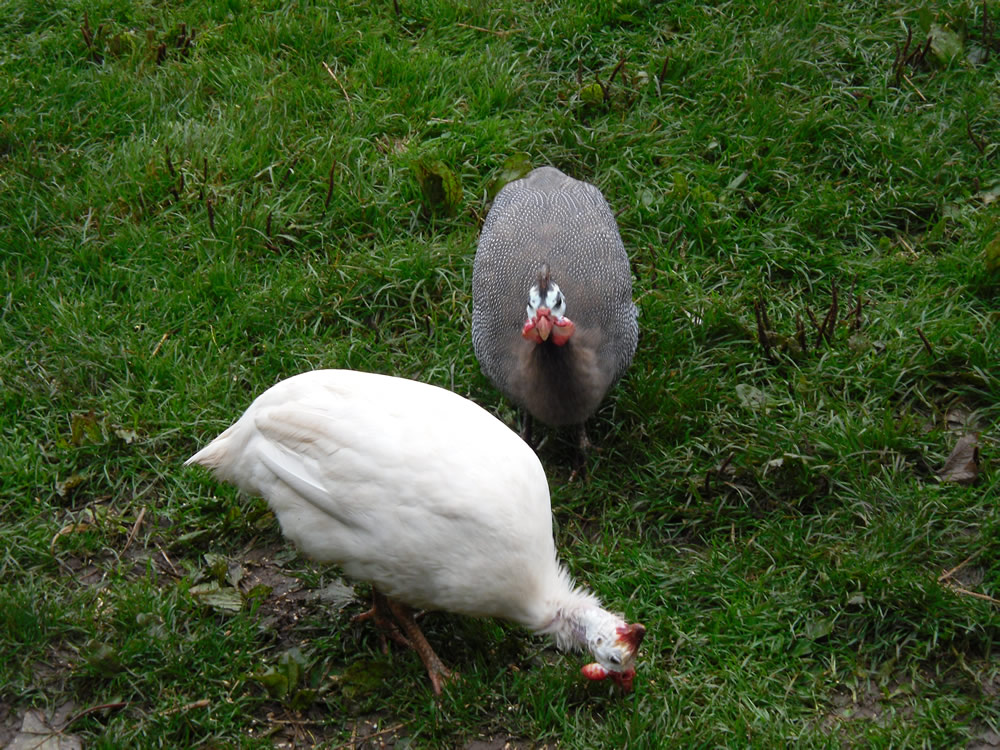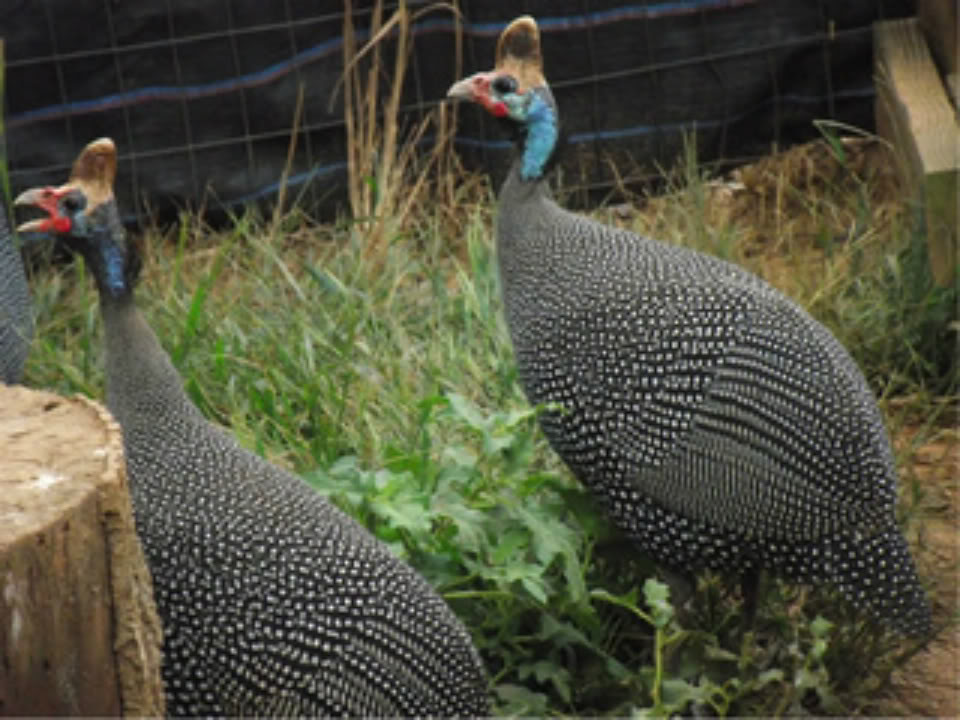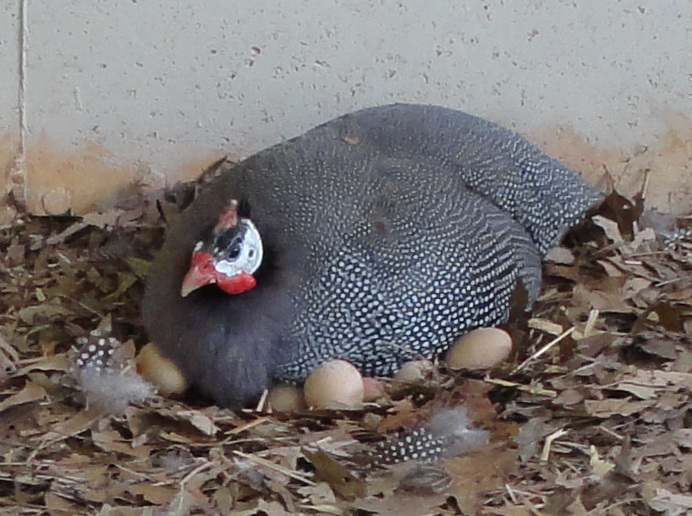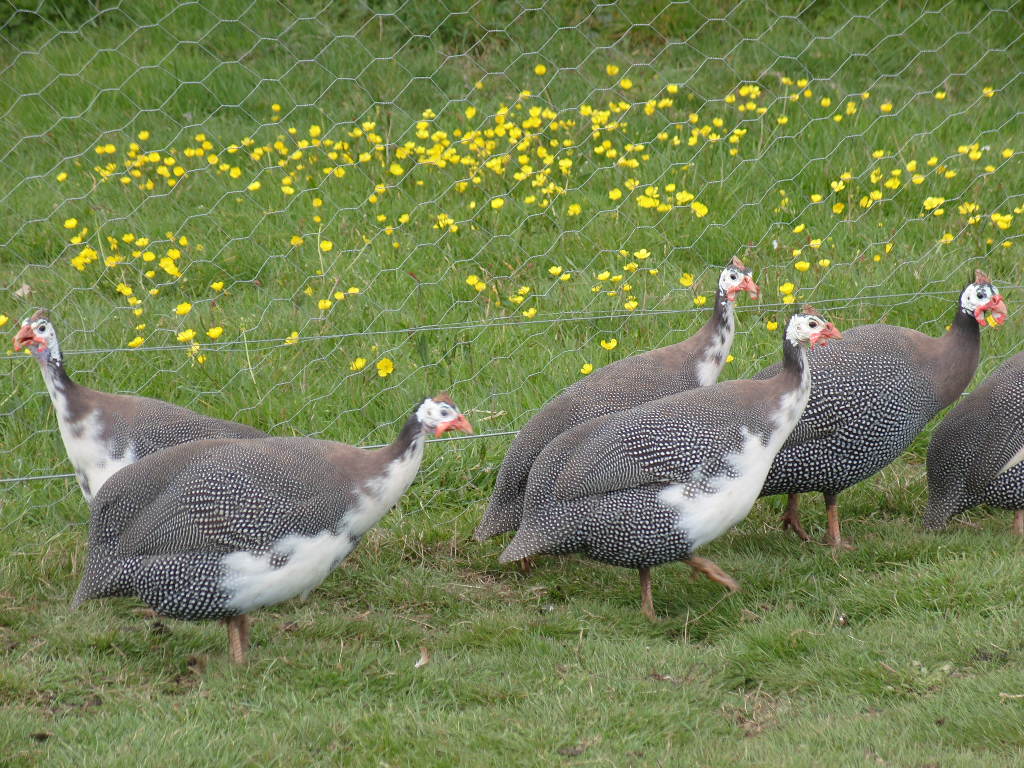After experiencing a lot of interesting facts about little guys – guinea fowls, I thought of sharing them with all those who are interested in raising them. I would start the guinea fowl facts with the story through which I got to learn a lot about this beautiful and interesting creature.
My father bought beautifully dressed in grayish suits, proud game birds – since then, I have noticed the guinea fowls scuttling up and down through the driveway. I have always been very observant that is why I was interested in knowing the behavior of these little guys too; as soon as its cockcrow, they start scouring the entire my father planted garden for nasty insects like ticks, locusts, beetles, and spiders etc. in fact, I have seen them running and eating the disgusting roaches and centipedes too. They act like the perfect watchdog, and trust me; they work even better than the stupid insecticides. Recently, I have noticed the guinea fowls in the pursuit for wasps, cutworms, snails, grubs and flies. They patrol the backyard completely and make sure nothing intrudes their adobe. They are truly relentless in their chase (prey).
I remember the time when we are guinea-less; trust me, had to suffer a lot because the most of the crops and the other plants were denuded by the devil beetles and grubs. However, soon the little gray fellows changed our lives because they gave us two important benefits;
- Watchdog
- Pleasant meal – the guinea fowl meat is really good – tempting indeed
- Guinea fowl eggs: they have strong outer covering but taste like chicken eggs, so many keep them for this purpose as well.

Raising the guinea fowls:
One thing that bothers me much – many people haven’t even heard about this beautiful and useful bird. Even today the keeping guinea fowl isn’t much common; the first time visitors inquire instantly, “is this a turkey?” you cannot say it’s a bad judgement because it belongs to the family (genre) which is a chicken look alike. They are Africans – I mean guinea fowl is an African native. To your surprise, there are 7 guinea fowl species; “helmeted Pearl” is the most known one because it has a weird sort of a helmet, with gray sexy dotted body, and has a face without any feathers.
These little fellows are more in plundering all the time. Also, they are sensible enough to catch the prey without damaging the plantation and crops. Interestingly, these fellows are less troublemakers. They require almost no medical treatment, as they are robust enough to stand against the diseases. Also, they adapt the changing weather conditions. Because of the dominant acts and authoritative nature, this fowl is still not really popular like chicken. However, need to shelter arises in order to keep the fowls safe from the dogs, cats and owls.
Endearing habits:
A few habits which make these birds a little less adoring is, the guinea fowl sound – they are the noisiest birds I have seen. If you have high-strung neighbors, you cannot keep them even in your backyard. Specially, the residential areas like proper housing societies cannot afford to keep such a noisy bunch of fellows; it seems as if they are too talkative. Also, guinea fowl (hen) egg can only be acquired seasonally; also, the newly born babies are way sensitive and need lot of attention. Another bad thing about this bird, it won’t ever be loyal to you – they are not pal type of birds; they would eat what you serve, would tolerate you when around, but won’t ever be your pal. This is something that’s in the bird naturally – they are fond of prowling and love the freedom.
Deciphering sound and gender:
Interesting thing to note here – when the fowl is newly born (baby guinea is known as Keets) you won’t be able to figure out the gender until it gets 8 weeks. Later, you will distinguish between the hen and the cock based on their voices (sound);
· Cock cry is something like “chi-chi-chi-“; this sound is followed by a strong “Chrrrr” sound.
· The hen cry is somewhat similar to “comeback”, many even say it’s similar to “good-luck”
It is said that when a guinea hen is angry or upset about something, it may sound like a cock; however, cock never depicts a hen, sounds like too arrogant from the male gender. In a nutshell, the bird is interesting to be with; not only this, it’s an ideal watchdog and does not bother much.

Hatching ability:
Guinea fowl are not excellent broody hens. Often guinea fowl leaves their nest as soon as some eggs are hatched, don’t wait for other eggs to be hatched, so it is better to hatch eggs under some broody chicken hen or using an incubator.


Very nice info, I experienced in Africa for 13 yrs.
Very Good and informative. Thank you. Farhansheikh.
S. D. Chowdhury
Well articulated and rich with facts
one correction. I have one named George who came out of the woods a few years ago, and he’s most certainly my pal. follows me everywhere just like a puppy and is always running to the door, waiting for me when i get home. likes to sit in my lap and coo with his head on my arm. I bet the silly boy would sleep in my bed if I allowed him to 🙂
May I add, mine sleep in the trees and have taught the chickens to sleep up there as well.
My grandparents had guinea fowls in our home in the village to keep the snakes away. These birds are so noisy and they seem to irritate the snakes. Their wings had to be clipped so that they did not stray too far from our house. They can fly for short distances and some of them rested in the tress during night time.
I love raising guinea fowl; but, because they nest on the ground in tall growth, they are at risk of coyote attack. I live in a semi-rural area; and neighbors love them. When grasshoppers were devouring everything last summer, my property had very few because of the birds.
Thank you. I enjoyed the article, it was very informative and now gives me more to consider before purchasing them. I hope to add them to the family one day soon but probably have to wait until we can live further out of the community we are now in.
Keep blogging, your work is appreciated.
Thanks for the info. We acqired a dozen birds last fall from a guinea-rich neighbor. We collected our first dozen eggs today. I’m pleasantly surprised to learn from reseach – the high protein and low caloric content of the eggs. Hope to keep this group “landed” by introducing chicks this spring. The intent being the chickens will help keep the guineas coming back into roost in their house.
Thank you for great article
Have been debating in whether to add guinea fowl to my farm.
I think they would help greatly with garden pests
I have issues with stink bugs ,hope they eat them
Regards
Sue Ellen
I have raised Guineas before. I love them. Very good watchdogs and big scavengers. A great way to tell the gender of a Guinea is to look at the waddles. A females waddles will be small and close to the jaw. A male will have a curl and longer waddle.
On the occasion where the Guinea has both small and curl waddle has been told to me to be a cross gender. Nature has a way of ensuring survival of the species.